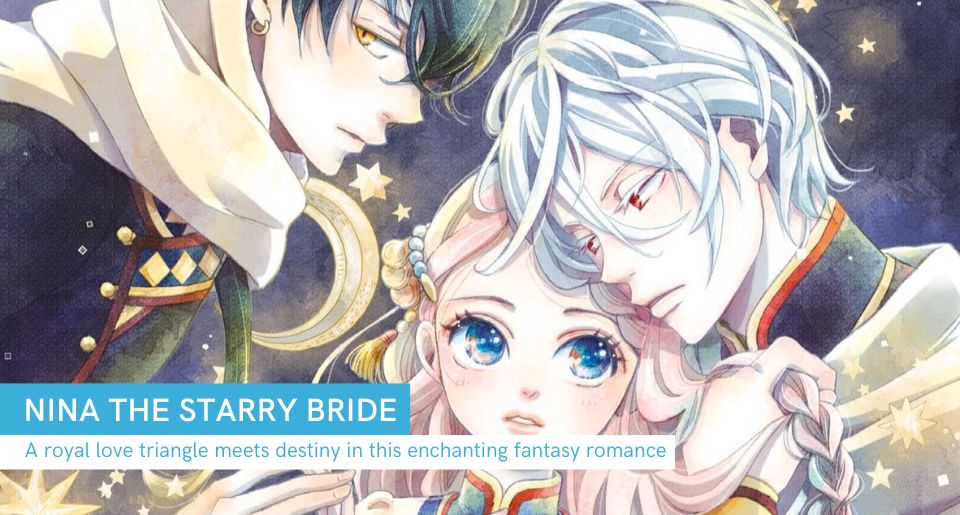Contents
Introduction
In the vast world of manga, where tales of heroism, love, and destiny abound, few can shine as brightly as Basara, a revered creation by the talented Yumi Tamura. This epic masterpiece, originally serialized from 1990 to 1998 in Bessatsu Shoujo Comic, has garnered widespread acclaim for its enthralling narrative and unforgettable characters. Its legacy was further solidified by a thirteen-episode TV series that graced the screens in 1998, commencing its broadcast just before the manga's conclusion. Remarkably, Basara boasts an impressive circulation of 15 million copies.
Basara extends an open invitation to readers and viewers alike, urging them to embark on an extraordinary journey within a post-apocalyptic future Japan. Here, a young and resolute heroine named Sarasa employs her cunning intellect and the unwavering power of friendship to lead her people towards the ultimate goal: freedom.
Feminine Lens on Heroic Fantasy

Sarasa, posing as her twin brother Tatara, Shuri the Red King, and the ever-mysterious Ageha.
At its heart, Basara is a classic tale of a hero rising from humble origins to challenge the tyranny of an evil king. However, what distinguishes this narrative is its infusion of romance and melodrama, making it a story that resonates with both traditional and modern notions of love. In Basara, tears flow freely from characters of all genders, and the central problem revolves around a forbidden love between the story's heroine and hero, who remain blissfully unaware of their opposing roles in a war.
While technically set in post-apocalyptic Japan, Basara initially presents a world that appears to belong to a distant past, complete with ancient villages, traditional robes, and swords. The precise nature of the apocalyptic catastrophe is never explicitly revealed, as the present-day narrative takes precedence over historical exposition. Yumi Tamura's world-building is meticulous, creating an immersive setting that feels simultaneously familiar and otherworldly.
The Tale of Twins and Prophecy
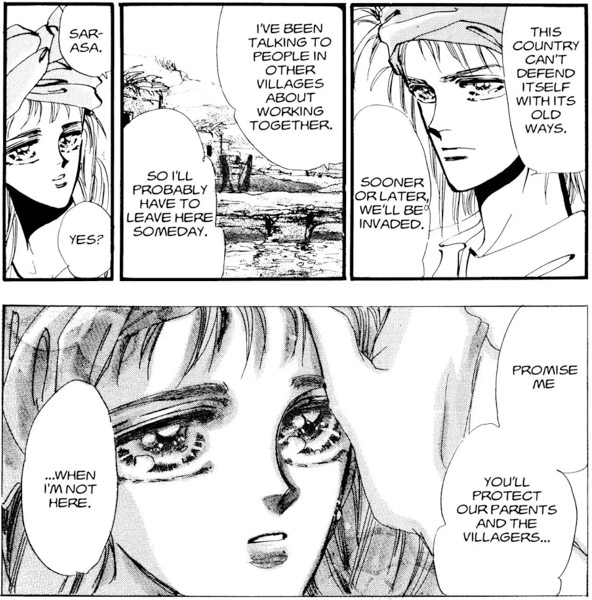
Tatara entrusts the village to Sarasa in his absence.
The story commences with the birth of twin siblings, Tatara and Sarasa, in a remote desert village. A prophecy emerges, foretelling that one of the twins will become the "Child of Destiny" destined to guide Japan toward freedom and prosperity. To the villagers' initial assumption, Tatara is anointed as the Chosen One, casting a shadow over his sister, Sarasa. However, when the Red King learns of this prophecy, he launches an attack on the village, capturing Tatara and ultimately executing him.
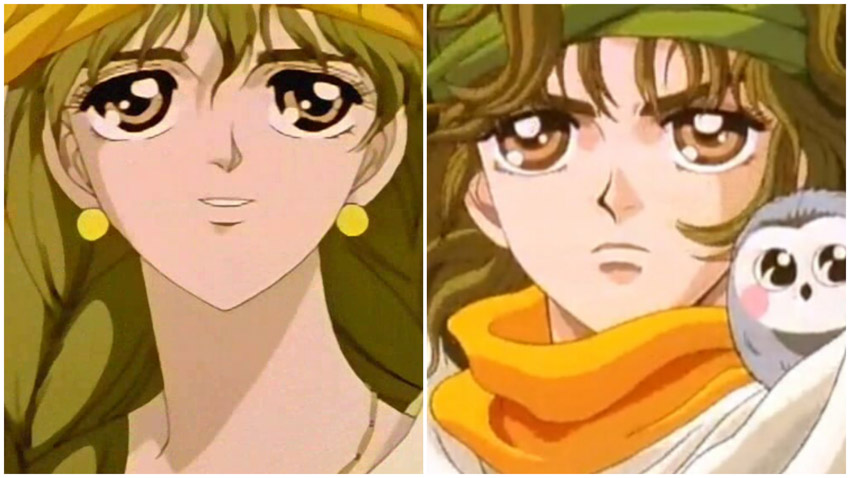
Sarasa before the real Tatara’s death and after she disguised herself as Tatara.
In the aftermath of this tragedy, Sarasa adopts a new identity, disguising herself as her deceased brother to shield her people from the depths of despair. With leadership thrust upon her, Sarasa initially seeks vengeance against the Red King for the brutal murder of her family. However, as she embarks on a series of adventures, her motivations profoundly evolve. Gradually, her quest transforms into a mission to dethrone all oppressive kings and establish a society where every individual enjoys equal rights and opportunities.
A Transformation of Purpose
As Sarasa takes on her new role as leader of her village, her initial motivation is driven by a thirst for revenge against the Red King, who orchestrated the brutal murder of her family. Yet, as she embarks on a series of transformative adventures, Sarasa's motivations evolve. Gradually, her quest shifts from a personal vendetta to a broader mission to dethrone all oppressive kings and establish a society where equality reigns supreme. Sarasa's character arc is a testament to Tamura's narrative prowess, as she navigates the complexities of leadership, responsibility, and the pursuit of justice.
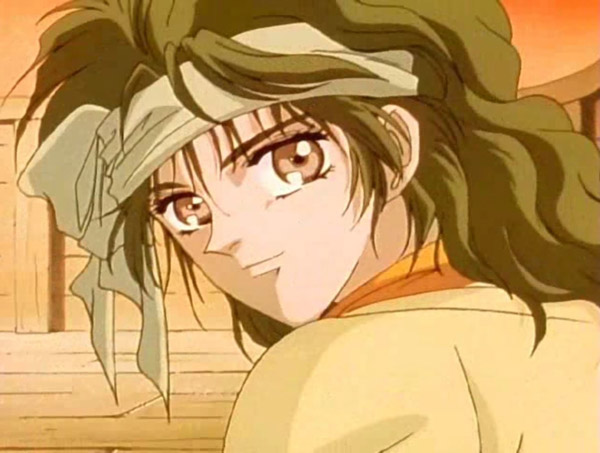
Sarasa as Tatara is very charismatic and intelligent, which is why she ends up inspiring people to follow her.
Basara incorporates progressive ideals that empower female characters and challenge traditional gender roles. While acknowledging the realistic depiction of women's status in a "medieval" society, the story allows female characters to shine in both traditional and non-traditional roles. Sarasa's character exemplifies strength and independence, dispelling any notion that she longs to return to her "proper" gender role.
Love and Complexity
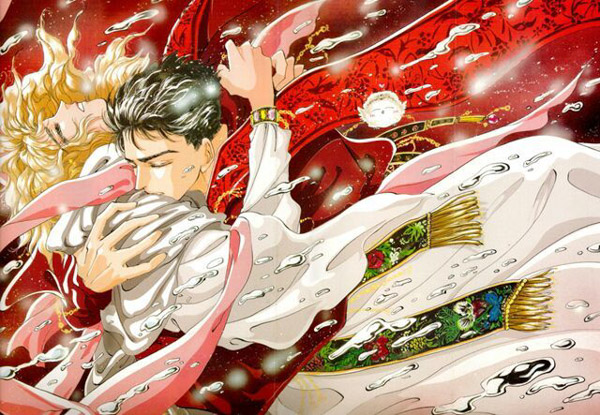
The relationship between Shuri and Sarasa in Basara is a central and intricate element of the story. Their connection begins with chance encounters, sparking intrigue and curiosity. As the story progresses, their relationship develops into a forbidden love, marked by a mutual attraction that transcends their opposing roles in the ongoing conflict.
What adds depth to their relationship is the fact that neither initially recognizes the true identity of the other. Sarasa continues to disguise herself as her brother Tatara, while Shuri remains unaware that the girl he has fallen for is his enemy's sister.
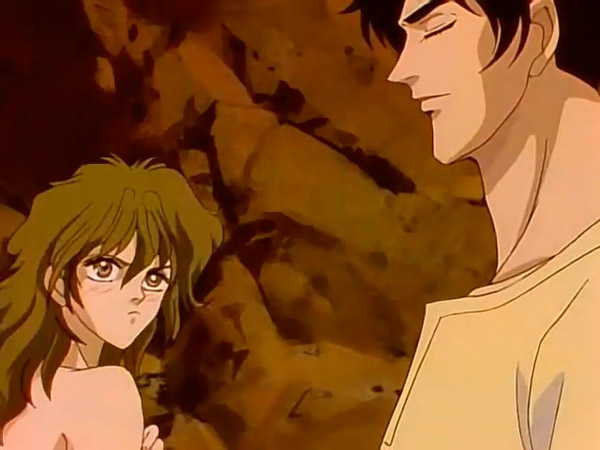
Sarasa and Shuri meet each other for the first time.
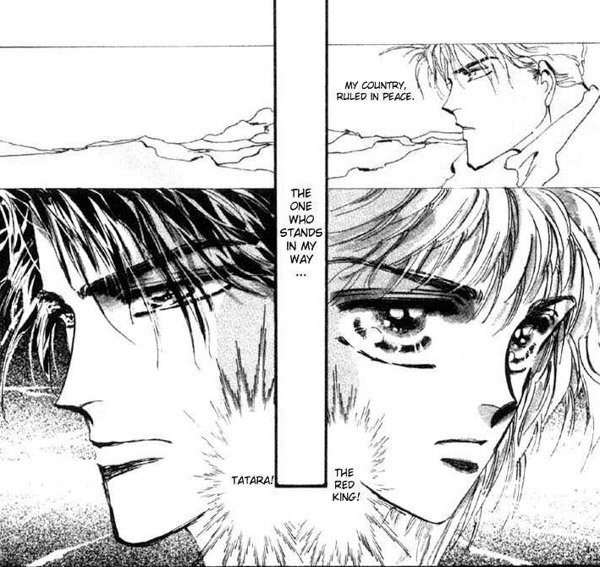
Shuri and Sarasa are enemies despite not knowing each other's identities.
Their connection also drives significant character development. Sarasa transforms from a timid, revenge-seeking sister into a strong and independent leader who desires justice for her people. Similarly, Shuri evolves from an arrogant figure with little regard for life into a more compassionate and responsible character.
However, their love story is complicated by the ongoing conflict and their loyalty to their respective causes. Sarasa leads a rebellion against the Red King's tyranny, while Shuri grapples with family politics. Throughout the series, Shuri and Sarasa's bond endures trials and challenges, symbolizing hope and unity in a war-torn world. Their relationship explores themes of love, rebellion, and destiny, highlighting how love can transcend adversity and emphasizing the enduring power of human connections.
Basara is an absolute essential for any shoujo enthusiast, and its continued popularity throughout the ‘90s remains thoroughly justified. This work transcends the confines of traditional fantasy manga, emerging as a true masterpiece in its own right. Its distinctive blend of epic storytelling, intricate character development, and a profound emphasis on romance and melodrama elevates it to the status of a genre-defining work. With its enduring themes of rebellion, love, and destiny, Basara continues to capture readers' hearts, leaving an indelible mark and exemplifying the unwavering power of hope and the invincible human spirit.
While it's true that the artwork may bear the marks of its era, and the narrative is a product of its time, don't allow these factors to deter you. In fact, this series is bound to captivate your imagination by forging a deep connection with its characters and evoking genuine empathy for their trials and tribulations. Yumi Tamura's mastery of storytelling is a treasure too valuable to pass up.
For those eager to embark on Sarasa's transformative journey, you can immerse yourself in the manga, which is readily available for purchase right here at ZenPlus!
What do you think?
Will Sarasa and Shuri ever discover each other’s true identities?
Will Sarasa’s crew accept her once they discover that she wasn’t actually Tatara?
Will Sarasa and Shuri have a happy ending despite being mortal enemies?
Let us know in the comments or drop us a line on social media: X (formerly Twitter), Instagram, Facebook! We’d love to hear from you!
ZenPlus is your one-stop shop for all things Japanese. Check out our marketplace for manga volumes, cosplay, figures, and other merch from the Basara franchise!
Basara isn’t being streamed on any legal platforms, but you can read the manga digitally on Viz.
About The Writer
Cristy is a freelance artist and writer who has been obsessed with anime and manga since childhood. Her love for these imaginative worlds fuels her creative endeavors, and she shows no signs of stopping anytime soon.


